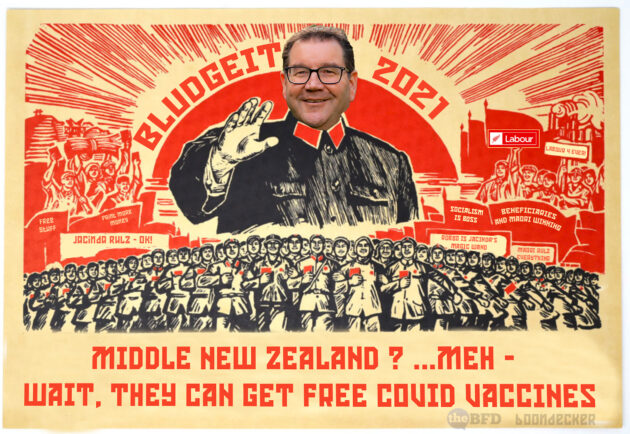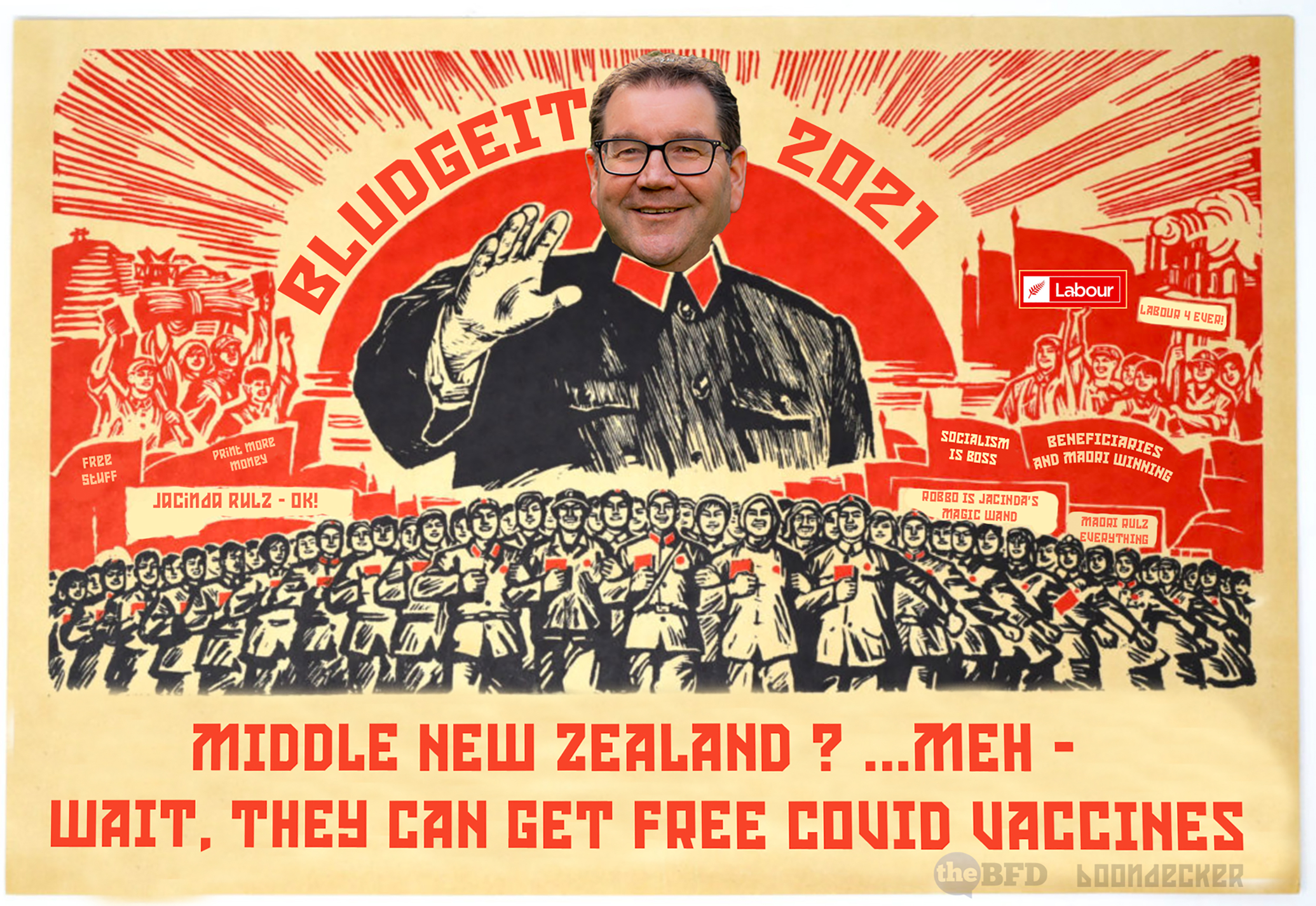It seems that its large majority, won at the last election, has gone to Labour’s head. On election night, Jacinda Ardern promised to govern for all New Zealanders. After all, she was well aware that many people who normally voted National had given her government a resounding second term. In the early days, she indicated that she was keen to keep those voters onside, with her sights set on a third term. However, socialists just cannot help themselves. In the first budget since winning the election, Labour completely forgot about everyone who voted for them, except the hardened Labour supporters.
They borrowed $3.3 billion to increase benefits. And that, for the most part, was it.

In a sneering reference to the Bolger government, Grant Robertson claimed to be ‘righting the wrongs’ of 1991. After the heady days of Muldoon and the disastrous days of David Lange, the country was well and truly broke in 1991. There was no choice but to take the steps that they did at that time, tough though they were. While many countries now spurn the idea of austerity, the thinking was very different in the 1990s. Once again, this government, with the largest majority ever seen under MMP, just cannot show any grace to past governments, no matter what economic conditions prevailed at the time.
Nevertheless, economic conditions in New Zealand must be exceptionally good if the government feels able to give $3.3 billion in additional welfare payments. The tax take must be at an all-time high. Unemployment must be at record low levels. Our two biggest export earners, farming and tourism, must be pumping away at full speed. There must be no dark clouds on the horizon. Above all, government debt and borrowing must be at record lows, because no responsible government would give out large welfare payment increases if all of those conditions were not firmly in place. It would be reckless in the extreme to do so otherwise.
But we all know that this is not the case. We are still in the middle of a pandemic, with the vaccine rollout still to be funded, borders still mostly closed, supply chain problems ongoing and, above all, with a government still borrowing money hand over fist to keep everything going. This $3.3 billion will mostly be borrowed… to give to people who are not contributing to society in any way.
Don’t get me wrong. It isn’t that I have no sympathy for beneficiaries, but I have more sympathy for working people paying their taxes, for businesses trying to keep going with increased costs mostly pushed onto them by government policy, and for those trying to buy a house in an increasingly difficult market. This budget has nothing aspirational in it for anyone. In fact, it is likely to encourage more people to go on the dole… which cannot be a good thing when we have labour shortages everywhere.
Labour’s answer? Beneficiaries spend everything they get, so this will stimulate the economy. This may be true, but Economics 101 also tells you that it will stimulate inflation. If a large sector of the economy starts spending up in a limited number of areas – accommodation and supermarkets mainly – then what is likely to happen? With increased demand and existing supply issues, there is only one outcome. Prices will increase.
Rents will increase. Jacinda says this won’t happen. She gives no justification for this – she just says they won’t. Of course they will. Rents are extremely high already, driven by a chronic shortage of available housing. Without there being any extra money available to renters, that situation was already likely to get worse. Now that is a certainty.
Of course, they could ease this situation by doing something about housing supply, but with the crashing and burning of Kiwibuild, Labour seems to have given up on housing. The budget forecast is that house price increases will fall to 0.9%. Again, they provide no real justification for this – they just think it will happen. But with no let up in sight on releasing land for housing, consents and council constraints being harder than ever and the construction industry being at full capacity, there is nothing to suggest that house prices will fall. People have to live somewhere. Housing shortages will almost certainly go on for a long time yet.
The biggest sin of the 2021 Budget is that the government claims that they will basically be out of deficit by 2025/6. It’s funny. Only last year, as COVID hit, we were told we would be in for ‘decades of deficits’, as the government was forced to borrow like drunken sailors just to keep everything going. While many of us disliked the prospect, we understood that a pandemic was a truly exceptional event. But in 2021, with the pandemic ongoing and the habits of the drunken sailors entrenched, magically, it is all going to be paid off in 4 years’ time. Because last year’s deficit turned out to be slightly better than predicted, it seems the government and Treasury now believe everything is going to be rosy, and there is nothing to worry about.
Except… we have a crumbling infrastructure (many of the ‘shovel-ready’ projects proposed by the government seem to have gone on the back burner), labour shortages, a country prone to earthquakes and a new government policy that makes going on the dole much more attractive. What could possibly go wrong between now and 2025?
I never had much confidence in this government, but I have absolutely none now. The biggest irony is that many beneficiaries, who have gained most from this budget, never bother to vote, whereas those soft voters in the middle, that shift from centre-left to centre-right, vote in droves. Jacinda will have just lost most of those voters in the centre. After all, socialists are renowned for spending other people’s money with wanton disregard. But those voters in the middle know where that money comes from. It comes from them, and they will remember this in just over 2 years’ time.
Please share this article with others

